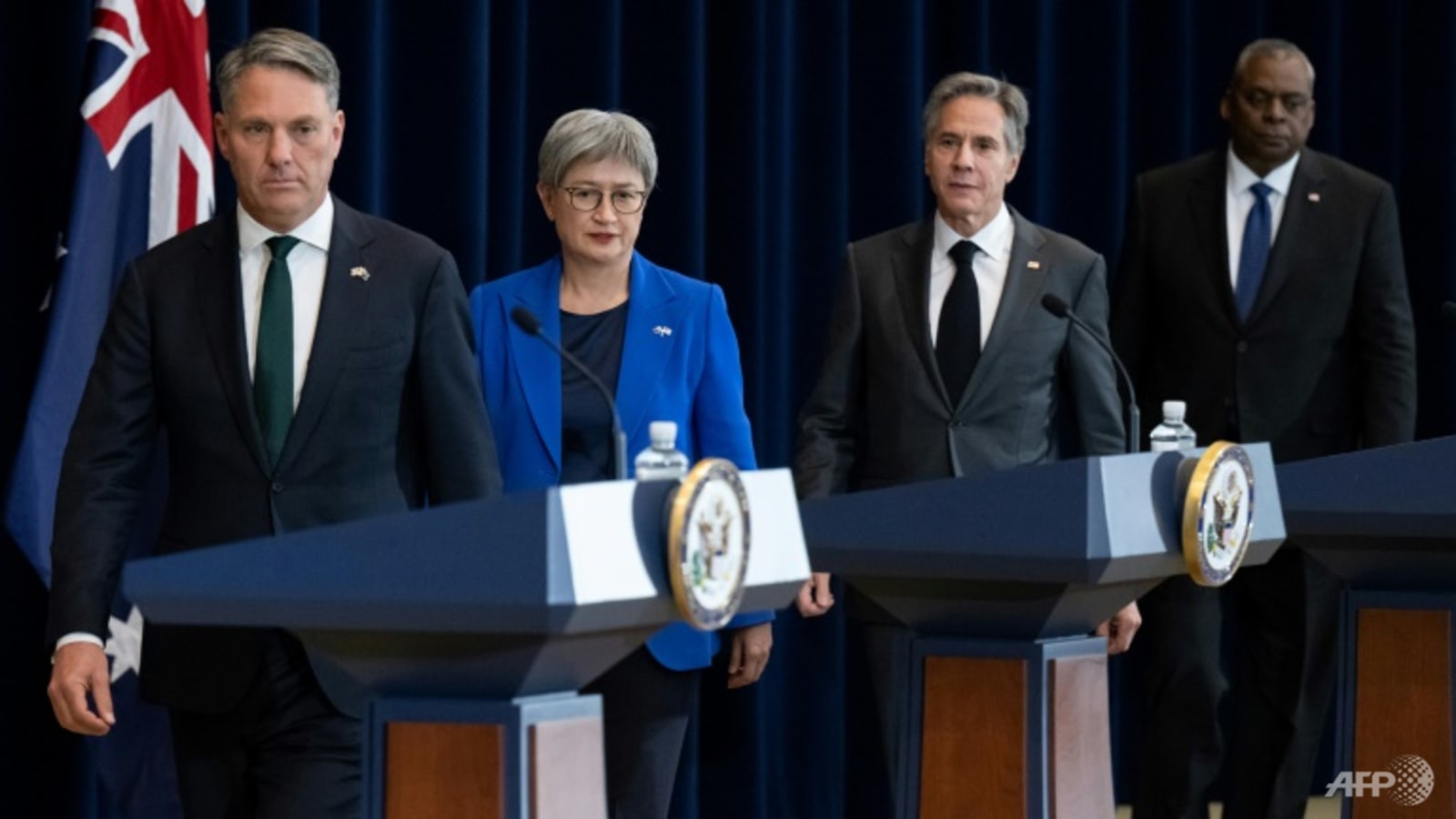
WASHINGTON: The United States and Australia said on Tuesday (Dec 6) they would welcome Japanese troops into three-way rotations, vowing a united front in the face of China’s rapid military advances.
Australia’s defence and foreign ministers said they agreed to step up the pace of military interactions with the US during talks with their counterparts in Washington, after which they will fly to Tokyo.
“It’s really important that we are doing this from the point of view of providing balance within our region and involving other countries within our region and we look forward to being able to have more engagement with Japan,” Australian Defense Minister Richard Marles told a four-way news conference.
“We can go to Japan at the end of this week with an invitation for Japan to be participating in more exercises with Australia and the United States,” said Marles, in the first such talks since Australia’s Labor government took office six months ago.
US Defense Secretary Lloyd Austin said the allies would seek Japanese participation in joint operations in Australia, where the US has been rotating Marines since 2011 through Darwin, the strategic northern city struck by imperial Japan in World War II.
Austin said the US and Australia agreed to increase rotations of bomber task forces, fighter jets and the US Army and Navy.
“We agreed to enhance trilateral defence cooperation and to invite Japan to integrate into our force posture initiatives in Australia,” Austin said.
Japan, a treaty-bound ally of the US, has in recent years sought growing diplomatic cooperation with Australia, but defence ties have been more sensitive due to Tokyo’s official pacificism since defeat in World War II.
But Japan has participated in exercises including three-way drills in May off Australia’s northeast coast that included infantry live fire and tank integration.
WARNING ON CHINA
The three countries have increasingly seen common cause due to the growing assertiveness of China under President Xi Jinping.
“China’s dangerous and coercive actions throughout the Indo-Pacific, including around Taiwan, toward the Pacific Island countries, and in the East and South China Seas, threaten regional peace and stability,” Austin said.
With an eye on China, Australia last year entered a three-way security pact with the US and Britain to acquire nuclear-powered submarines, angering France whose sale of conventional submarines was scrapped.
Secretary of State Antony Blinken told the Australians that the US was committed to “delivering on that promise at the earliest possible time”.
The defence ties comes despite a relative easing of tensions between the US and China, with Blinken set early next year to pay the first visit by a top US diplomat to Beijing in more than four years.
His trip comes after President Joe Biden met Xi in Bali in November and the two pledged to talk through key differences.
Key among them is Taiwan, the self-ruling democracy claimed by China, which responded furiously in August when US House Speaker Nancy Pelosi visited.
Earlier on Tuesday, a bipartisan group of Australian lawmakers visited the island despite warnings from Beijing.
Australian Foreign Minister Penny Wong said in Washington that there should be “no unilateral change to the status quo” over Taiwan and that Canberra valued “our longstanding unofficial relationship with Taiwan”.
The US, Japan and Australia have also worked together in recent years through the so-called Quad with India, which has been more hesitant than the other three about appearing to form an alliance aimed at China.

